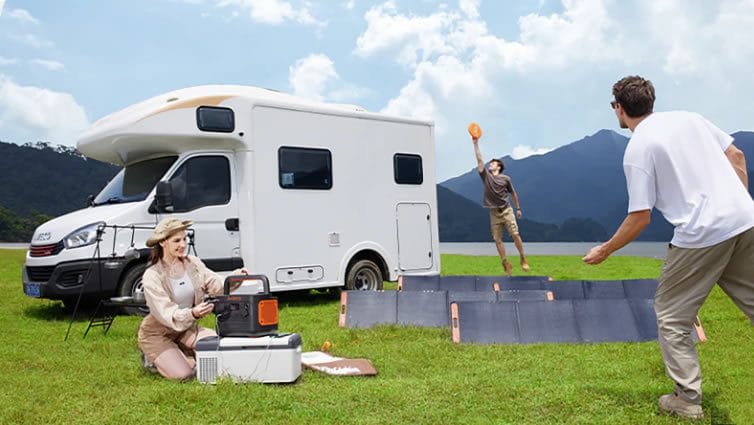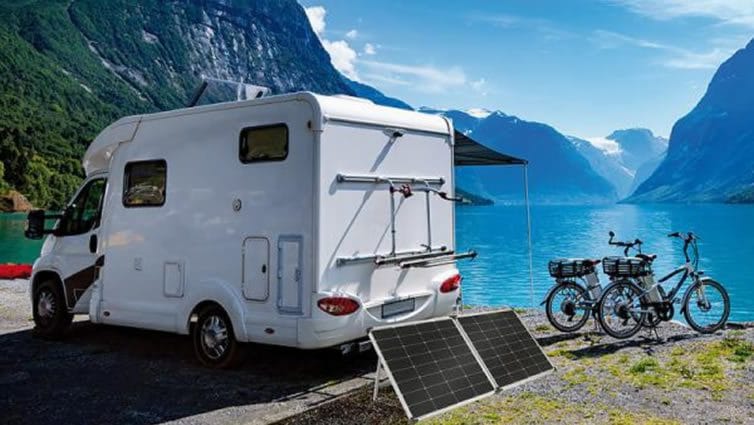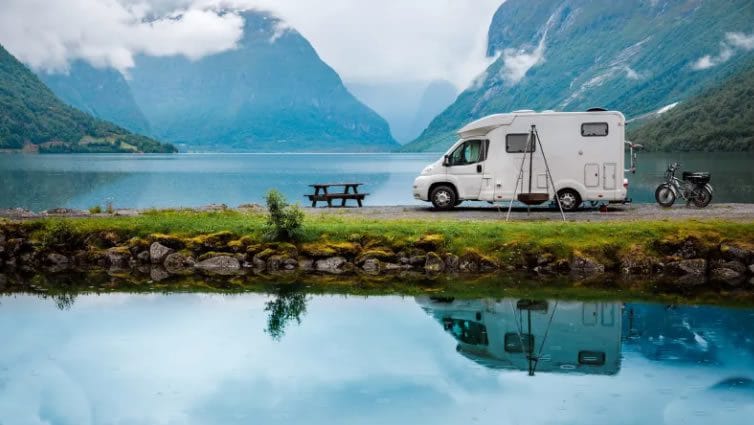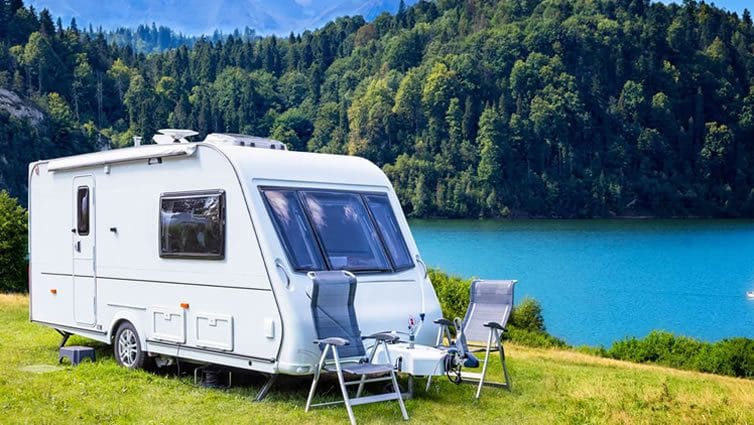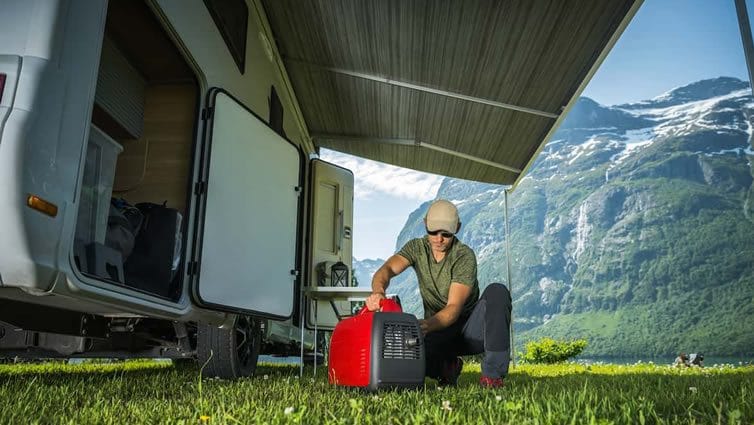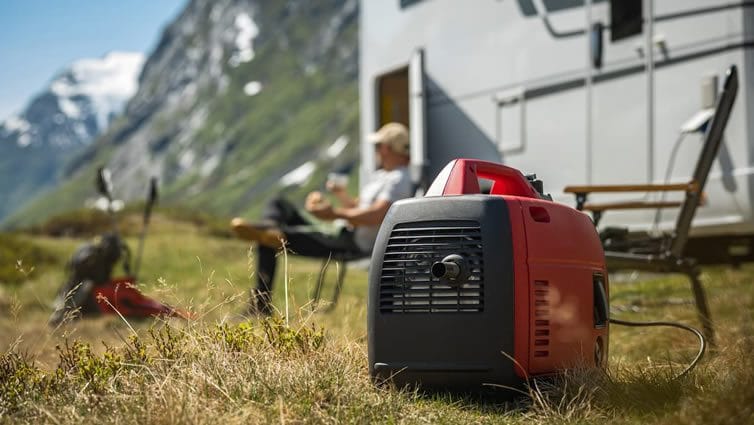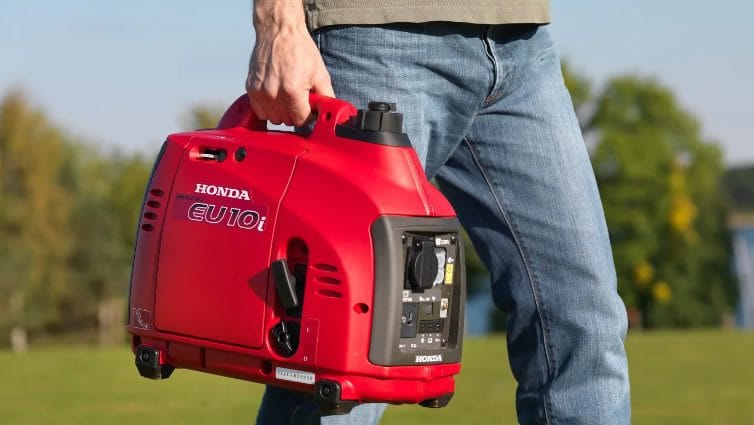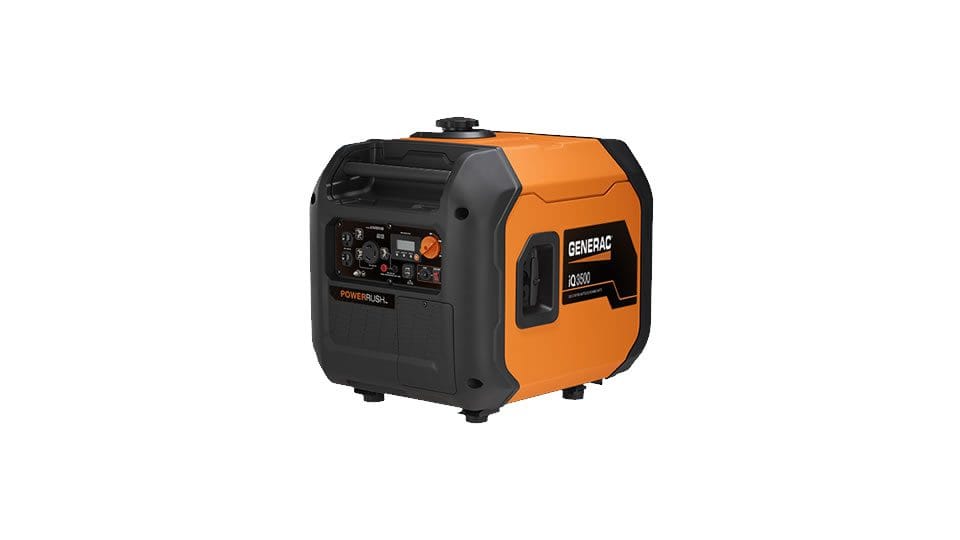Top Tips for Using a Portable Generator for Camper
Choosing the Right Generator Size for Camping
Choosing the right portable generator size for your camper can feel like a guessing game, but it’s simpler than you think. You don’t want to be caught without enough power in the middle of nowhere, but you also don’t want to lug around a heavy generator that’s overkill. So, how do you find the sweet spot? It’s all about understanding your power needs and matching those to the generator that fits your camper lifestyle.
What Appliances Do You Need to Power?
When choosing a portable generator for your camper, the first thing you’ll need to figure out is what appliances you plan to run. Do you just need it to keep the lights on and your phone charged, or are you powering something bigger, like an air conditioner or a refrigerator? Each appliance uses a different amount of watts, so it’s important to make a list of everything you’ll need and how much power each item requires.
For example, a small coffee maker might use around 600 watts, while an AC unit could easily pull over 2,000 watts. Don’t forget to account for your camper’s essentials, like the water pump or microwave, if you plan on running them off your generator.
Understanding Watts and Power Output
Once you’ve got a list of everything you plan to power, you can start calculating the wattage you’ll need. Generators are typically rated by their running watts and their surge watts. Running watts refer to the continuous power the generator provides, while surge watts are the extra boost needed to start up devices with higher initial demands, like a refrigerator.
Make sure to choose a generator that can handle both the running and surge watt requirements of your camper’s appliances. A good rule of thumb is to add up the wattage of all your must-have devices and then look for a generator that provides about 20% more than that. This gives you a cushion in case you decide to plug in an extra gadget or two.
Finding the Perfect Balance: Power vs. Portability
Camping is supposed to be fun and relaxing, right? You don’t want to spend half your trip wrestling with a massive generator that’s too heavy to lift. That’s why it’s crucial to balance the power you need with the portability you want. For most campers, a generator in the 2,000- to 4,000-watt range is the sweet spot. It’s enough to run your basic appliances and gadgets, but small enough to easily store and transport. If you’re only looking to charge small electronics or run minimal appliances, a generator with 2,000 watts should do the trick. However, if you want to power larger items like an AC unit, opt for something closer to 3,500 or 4,000 watts.
Portable generators for campers come in a variety of sizes and weights, so be sure to consider how much space you have available and how often you’ll need to move it around. After all, the last thing you want is a generator that takes up half your camper or requires a small army to carry!
Fuel Types and Efficiency
Another thing to consider when choosing the right size portable generator for your camper is fuel type. Some generators run on gasoline, while others use propane or even dual-fuel options. Gasoline generators tend to be more powerful, but propane is cleaner and can run for longer periods of time. Keep in mind that fuel efficiency is just as important as size. You don’t want to be stuck refueling constantly during your trip, especially if you’re camping in a remote location. Look for a generator that can provide the power you need without guzzling fuel too quickly. A good camping generator should offer enough runtime to get you through the night without needing to top up.
Noise Level Matters Too!
While power and portability are crucial, don’t forget about the noise level when picking your generator. Some portable generators can be loud enough to ruin the peaceful vibe of your camping trip. If you plan on camping in a quiet area or around other campers, you’ll want to choose a generator with low noise levels, usually under 60 decibels. Inverter generators are great for this, as they tend to be quieter than traditional models. You won’t have to shout over your generator just to hold a conversation!
Quiet generators are a great choice if you want to enjoy the sounds of nature, not drown them out. Plus, keeping your neighbors happy by not blasting them with noise is always a bonus. When choosing the right size generator for your camper, make sure it’s quiet enough to blend in with your surroundings.
Choosing the right portable generator size for your camper boils down to understanding your power needs, balancing that with the size and weight of the generator, and considering noise levels and fuel efficiency. It’s all about finding the right balance that works for you and your camping style. Whether you’re planning a weekend getaway or a long adventure, having the right generator size can make or break your trip. Just remember: bigger isn’t always better, especially if it means sacrificing portability or peace and quiet.
Fuel Options and Efficiency for Off-Grid Adventures
When you’re heading off the grid with your camper, choosing the right fuel type for your portable generator is key. Not only does it affect how long you can run your generator, but it also impacts convenience, fuel availability, and efficiency. You don’t want to find yourself out in the wilderness with a generator that guzzles fuel like a truck, right? So, let’s break down your fuel options and see how each one stacks up for your off-grid camping adventure.
Gasoline: The Go-To Fuel Choice
Gasoline is the most common fuel for portable generators, and there’s a good reason for that. It’s widely available, relatively inexpensive, and provides plenty of power. If you’re using a gasoline-powered generator for your camper, you’ll have no trouble finding a gas station to refill your tank. Gasoline is easy to store, but you do have to be careful. It’s highly flammable and tends to degrade over time. That means you’ll need to use fuel stabilizers if you plan on storing gas for a long time.
The downside to gasoline is that it can burn through fuel fairly quickly, especially if you’re powering a lot of appliances. On longer camping trips, you might need to carry extra fuel, which can take up valuable space in your camper. Plus, gasoline generators tend to be noisier than other options. If you’re camping in a peaceful spot and don’t want to disturb the serenity, you might want to consider other fuel options.
Propane: Clean and Convenient
If you’re looking for a cleaner, more eco-friendly fuel option, propane might be the way to go. Propane-powered portable generators for campers are becoming increasingly popular, and it’s easy to see why. Propane burns cleaner than gasoline, which means it produces fewer emissions. So if you’re an eco-conscious camper, you’ll be reducing your carbon footprint while enjoying your off-grid adventure.
Another benefit of propane is that it’s easy to store. Unlike gasoline, propane doesn’t degrade over time, so you can keep extra tanks without worrying about the fuel going bad. Propane is also safer to store since it’s less flammable. This makes it a convenient option for long trips when you want to bring along extra fuel.
However, propane generators typically provide less power than their gasoline counterparts. If you’re running multiple high-wattage appliances in your camper, a propane generator might struggle to keep up. You’ll also need to make sure you have easy access to propane refills, especially if you’re camping in remote areas. While propane is readily available in most places, it’s not as easy to find as gasoline in more off-the-beaten-path locations.
Dual-Fuel Generators: The Best of Both Worlds
Can’t decide between gasoline and propane? No worries! Dual-fuel portable generators offer the best of both worlds by giving you the option to switch between gasoline and propane. With a dual-fuel generator, you can use gasoline for the extra power when you need it, and switch to propane for longer, quieter runs. This versatility makes dual-fuel generators perfect for off-grid camping, where fuel availability can be unpredictable.
Dual-fuel generators are also more efficient because you can switch to the fuel that makes the most sense for your situation. If you’re close to a gas station, use gasoline. If you’re stocked up on propane, switch to that for longer runs. Having the option to use both fuels gives you more flexibility and peace of mind when you’re miles away from civilization.
Of course, dual-fuel generators tend to be more expensive than single-fuel models, but the added flexibility and fuel efficiency can make them worth the investment. Plus, having the option to switch fuels means you’re never stuck without power, no matter where your off-grid adventure takes you.
Solar Generators: Going Green with Zero Fuel
For campers looking to go completely green, solar-powered generators are a game-changer. These generators use solar panels to convert sunlight into electricity, making them one of the most eco-friendly options out there. If you’re camping in sunny spots or planning extended stays, a solar generator could be the perfect portable power solution for your camper.
The best part? There’s no fuel needed! Solar generators don’t rely on gasoline, propane, or any other type of fuel. Instead, all you need is sunshine. This means no fuel costs, no emissions, and no worries about storing or transporting fuel. They’re also incredibly quiet, so you can enjoy the sounds of nature without the hum of a generator in the background.
However, solar generators do have their limitations. Since they rely on sunlight, cloudy or rainy days can leave you without much power. Solar generators are also less powerful than fuel-powered models, so if you need to run high-wattage appliances, you might want to pair a solar generator with a traditional one for backup. Despite these challenges, if you’re serious about reducing your environmental impact, solar power is worth considering.
Finding the Fuel Efficiency Sweet Spot
So, which fuel option is the most efficient for your portable generator? It depends on your needs and camping style. Gasoline might provide the most power, but it’s not as efficient for long-term use as propane. Propane is clean and convenient but can be a little underpowered for larger campers or extended trips. Dual-fuel generators strike a balance between power and efficiency, giving you flexibility on the go. And if you’re willing to rely on Mother Nature, solar generators offer the ultimate fuel-free option.
When it comes to fuel efficiency, you’ll want to choose a generator that gives you the most power for the least fuel consumption. Look for models with long run times and lower fuel consumption rates. Some generators are designed with eco modes that adjust the power output based on the load, which can help conserve fuel during lighter usage.
Final Thoughts on Fuel Efficiency
Fuel efficiency plays a major role in choosing the best portable generator for your camper. Whether you’re powering up with gasoline, propane, or going green with solar, understanding your fuel options will help you maximize your off-grid experience. Each fuel type has its pros and cons, but with the right balance of power and fuel efficiency, you’ll never be left in the dark (or worse, without your morning coffee) on your next camping adventure.
Now that you know your fuel options, you can confidently choose the portable generator that suits your off-grid style. Just remember to pack enough fuel and plan for a backup option, because nothing ruins a great camping trip like running out of power at the worst possible moment!
Noise Levels: Keeping Your Campsite Quiet
Camping is all about getting away from the hustle and bustle of daily life, right? You head out to nature to enjoy peace, quiet, and the sound of the wind in the trees. But if your portable generator for the camper is roaring louder than a lawnmower, that serenity is quickly lost. Luckily, choosing the right generator can help you keep your campsite quiet and your neighbors happy. Let’s explore how to minimize noise levels while still getting the power you need during your off-grid adventures.
Understanding Decibel Levels: What’s Quiet Enough?
When shopping for a portable generator, you’ve probably noticed something called decibels (dB) listed on the spec sheet. Decibel levels measure how loud a generator will be while it’s running. To put things into perspective, normal conversation is about 60 dB, while a busy street can be around 70 dB. Anything above 70 dB might start to feel loud, especially in the quiet of a campground.
Ideally, you’ll want a generator with a noise level of 60 dB or lower to avoid disrupting the peaceful ambiance of your campsite. Some of the best portable generators for campers are designed to be ultra-quiet, running at around 50-58 dB. These models are quiet enough that you can have a conversation nearby without having to shout or raise your voice, keeping the campground atmosphere relaxed.
Inverter Generators: The Quiet Power Solution
If you’re serious about keeping things quiet, an inverter generator is probably your best bet. These generators are designed with efficiency and low noise in mind. Unlike conventional generators, which run at a constant speed, inverter generators adjust their engine speed based on the power demand. This means they only use as much power as you need, which helps reduce both fuel consumption and noise levels.
Inverter generators are typically much quieter than traditional models, often running between 50-60 dB. Many campers love them because they provide clean, stable power for sensitive electronics like phones, laptops, and cameras, all while staying whisper-quiet. So if you want to enjoy the sounds of nature without the rumble of a generator in the background, an inverter generator is a great choice for your camper.
Placement Matters: Location, Location, Location!
You’ve probably heard the saying “location is everything,” and it definitely applies to your portable generator’s noise levels. Where you place your generator at the campsite can make a big difference in how loud it seems. Generators produce most of their noise from the exhaust, so positioning the exhaust end away from your camper and outdoor living area can help reduce the perceived noise. The farther away you place your generator from your sleeping or lounging areas, the quieter it will seem.
If your campsite allows, consider setting your generator at least 20 feet away from your camper and other campers. Just make sure to follow any guidelines on generator placement and safety, especially regarding ventilation and carbon monoxide risks. And don’t forget to place it on a flat, solid surface. Generators can vibrate when running, and placing them on soft ground, like grass, can help dampen that vibration and reduce noise.
Invest in a Generator Muffler or Enclosure
If you’re looking for additional ways to minimize generator noise, investing in a muffler or generator enclosure could be the perfect solution. Mufflers can be attached to your generator’s exhaust to help reduce the amount of noise it produces. These are especially useful if your generator model is on the louder side, but you’re not ready to upgrade to a quieter one just yet.
Another option is to use a generator enclosure or noise-reducing box. These enclosures are specifically designed to dampen the sound without blocking airflow or causing overheating. They can make a noticeable difference in noise levels and are easy to carry along with your camper gear. Just make sure the enclosure you choose is compatible with your generator model and allows proper ventilation to avoid any safety risks.
Be a Considerate Camper: Generator Etiquette
Let’s face it—no one wants to be the camper with the obnoxiously loud generator disturbing everyone else’s peace. Following some basic generator etiquette can go a long way toward keeping the campsite harmonious. Start by checking campground rules about generator use. Many places have designated quiet hours, often from late evening to early morning, during which running a generator is not allowed. Make sure to stick to these quiet times out of respect for your fellow campers.
When you do need to run your generator, try to limit its use during peak times when others are most likely relaxing or sleeping. For example, avoid running it first thing in the morning or late at night when people are winding down for the day. Instead, run it during the afternoon when there’s more ambient noise and fewer people trying to nap or enjoy some quiet time.
Quiet Camping
Noise levels might not be the first thing you consider when shopping for a portable generator for your camper, but they’re an important factor, especially if you value the peaceful atmosphere of nature. By choosing a quieter generator, like an inverter model, and being mindful of where and when you use it, you can ensure that your generator provides all the power you need without disrupting the serenity of your camping trip.
In the end, keeping noise levels low while camping is all about balance. You want enough power to keep your camper running smoothly, but you also want to enjoy the quiet sounds of the outdoors. With the right generator and a few noise-reducing tips, you can have the best of both worlds—reliable power and a peaceful campsite. So the next time you hit the road with your portable generator, you’ll be ready to enjoy a quiet, relaxing adventure under the stars.

